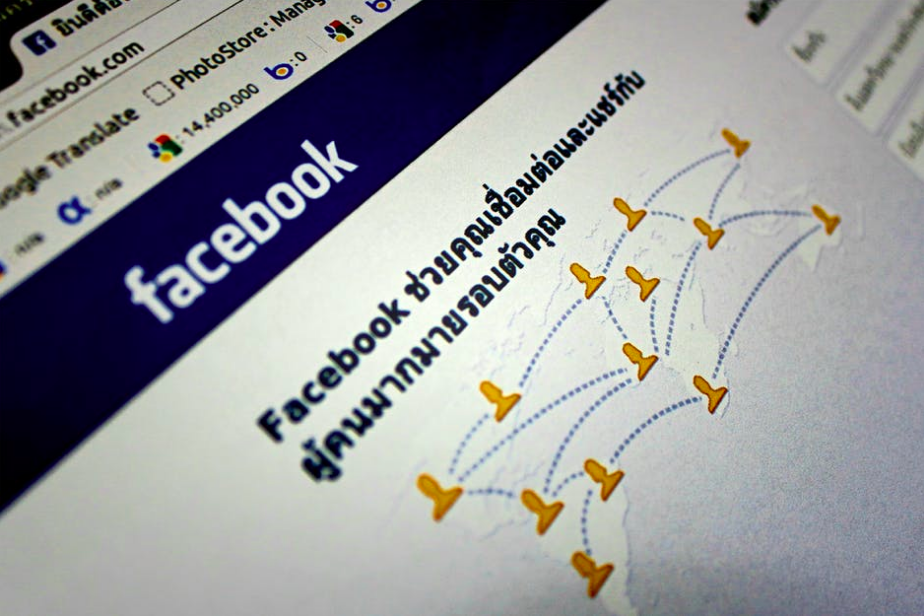Thinker Thoughts is evolving! Every Friday, we’re sharing our 3 favorite reads of the week and what they encouraged us to think about. Give them a think and let us know your thinker thoughts!
What We’ve Been Thinking About This Week
1. What it would be like to FaceTime with your doctor…
 An article in Wired, “Telemedicine is Forcing Doctors to Learn ‘Webside’ Manner” (10/26), has us weighing the pros and cons of utilizing digital tools to connect clinicians with their patients, noting that some schools are incorporating telemedicine instruction into their medical school curriculum.
An article in Wired, “Telemedicine is Forcing Doctors to Learn ‘Webside’ Manner” (10/26), has us weighing the pros and cons of utilizing digital tools to connect clinicians with their patients, noting that some schools are incorporating telemedicine instruction into their medical school curriculum.
The quote:
“Ad hoc, virtual visits can work great when a patient needs a quick diagnosis for a sore throat or weird rash. But many experts are skeptical of clinicians’ ability to deliver compassionate, high-quality care to virtual strangers. ‘Look, there’s variation whether you see a clinician in person or whether you see them online, so I’m not saying in any way that telemedicine is less helpful than in-person visits, or that webside manner is worse than bedside manner,’ says UCSF pulmonologist Adams Dudley. ‘But webside manner definitely requires more cooperation, and a different kind of cooperation, than bedside manner.’”
2. Why the U.S. is the ‘most depressed’ country…
 An article in the Wall Street Journal, “Why Personal Tech is Depressing” (10/26), encourages us to opt for in-person interactions over digital communication for the sake of our mental health, citing recent research which found that antidepressant use in the U.S. has risen 400% since 1990.
An article in the Wall Street Journal, “Why Personal Tech is Depressing” (10/26), encourages us to opt for in-person interactions over digital communication for the sake of our mental health, citing recent research which found that antidepressant use in the U.S. has risen 400% since 1990.
The quote:
“We live in an era of previously unimaginable luxury. Without leaving our sofas, we can conjure almost any book or film on our phone and enjoy it with exotic cuisine delivered right to our doorstep via an app. But there is a cost to this convenience that doesn’t appear on your credit-card statement. Our indoor, sedentary and socially isolated lives leave us vulnerable to depression. The U.S., the most technologically advanced nation on the planet, is also the most depressed: Three in 10 Americans will battle depressive illness at some point in their lives, an estimated tenfold increase since World War II….
At first blush, it seems as if our smartphones should keep us better connected than ever through an endless stream of texts, instant messages, voice calls and social-media interactions. But as smartphones have become ubiquitous over the past decade, the proportion of Americans who report feelings of chronic loneliness has surged to 40%, from 15% 30 years ago. The psychological burden is particularly pronounced for those who don’t balance screen time with in-person interactions. Face-to-face conversations immerse us in a continuous multichannel sensory experience—only a fraction of which can be transferred via text or video message. Communicating solely through technology robs us of the richer neurological effects of in-person interactions and their potential to alleviate feelings of loneliness and depression.”
3. How we can learn to deal with fanatics through compassionate listening…
 A column by David Brooks in the New York Times, “How to Engage a Fanatic” (10/23), challenges us to resist our natural instinct to ‘fight back’ when conversing with people we don’t agree with, and instead opt for civility.
A column by David Brooks in the New York Times, “How to Engage a Fanatic” (10/23), challenges us to resist our natural instinct to ‘fight back’ when conversing with people we don’t agree with, and instead opt for civility.
The quote:
“You engage fanaticism with love, first, for your own sake. If you succumb to the natural temptation to greet this anger with your own anger, you’ll just spend your days consumed by bitterness and revenge. You’ll be a worse person in all ways.
If, on the other hand, you fight your natural fight instinct, your natural tendency to use the rhetoric of silencing, and instead regard this person as one who is, in his twisted way, bringing you gifts, then you’ll defeat a dark passion and replace it with a better passion. You’ll teach the world something about you by the way you listen. You may even learn something; a person doesn’t have to be right to teach you some of the ways you are wrong…
We all swim in a common pool. You can shut bigots and haters out of your dining room or your fantasy football league, but when it comes to national political life, there’s nowhere else to go. We have to deal with each other.”
Phrase of the week: “It’s official: horror is back.”
An article in NPR, “Watch Out: This Halloween, Horror is Back” (10/26), reports that “thanks to a resurgence of scary movies [i.e. It, which came out September 8th, based on the novel by Stephen King] and a desire to escape the real world”, people are opting for costumes that provoke horror and fright.
And on that note…








